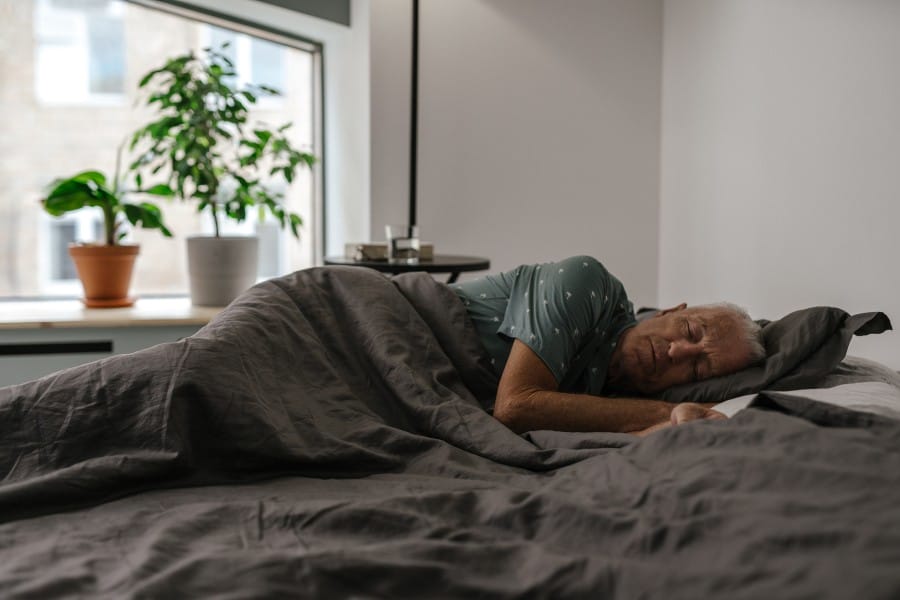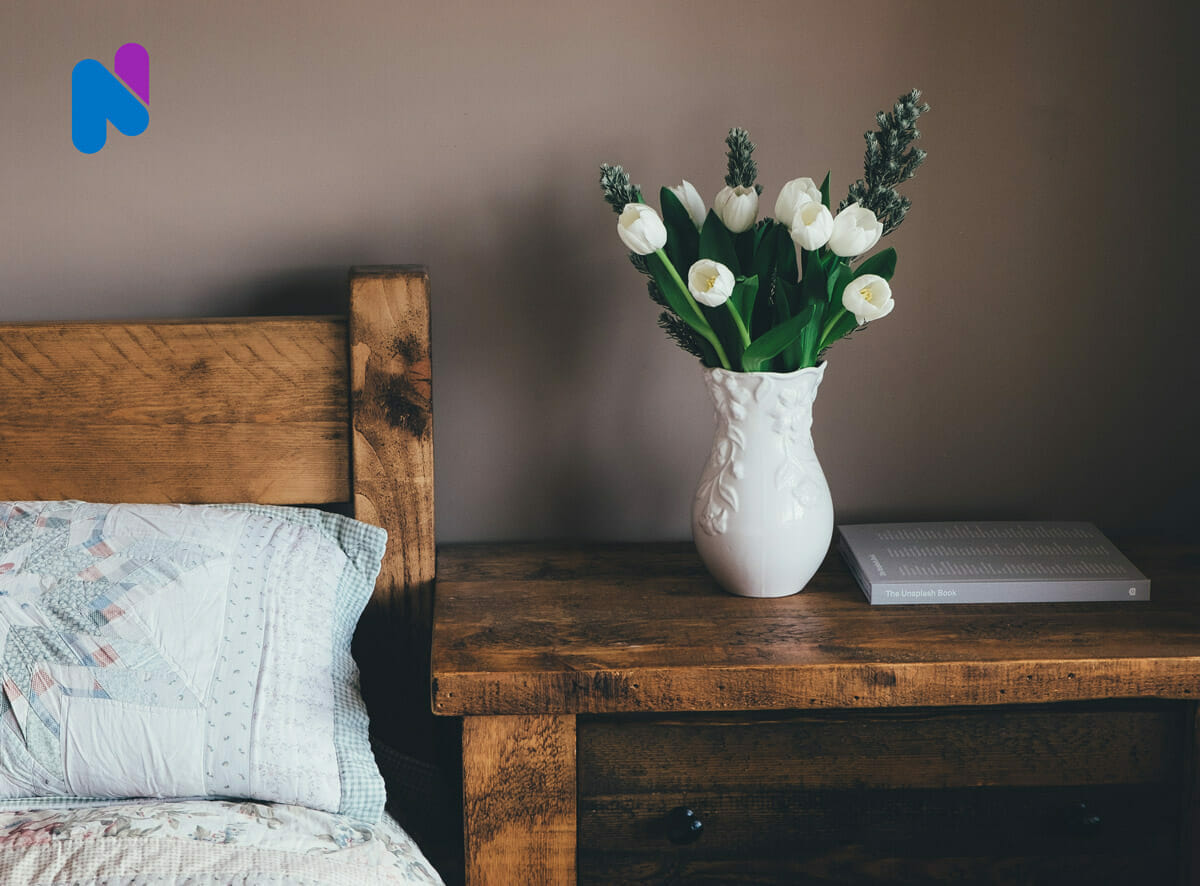Sleep is a vital aspect of human health, and its impact on diabetes is undeniable. Diabetes is a chronic condition that affects millions of people worldwide.
It is a disease that affects the body’s ability to produce or use insulin, a hormone that regulates blood sugar levels.
Sleep disturbances can have a profound impact on diabetes management, making it difficult for those with the condition to manage their blood sugar levels effectively.
Understanding the relationship between sleep and diabetes is essential for diabetics and healthcare professionals. Poor sleep quality can lead to insulin resistance, a condition that makes it difficult for the body to use insulin effectively.
This, in turn, can lead to high blood sugar levels and other complications associated with diabetes. While the exact mechanisms that link sleep and diabetes are still being studied, there is no doubt that getting enough restful sleep is essential for those with diabetes.
Key Takeaways
- Poor sleep quality can lead to insulin resistance, making it difficult for the body to use insulin effectively.
- Lifestyle factors such as diet, exercise, and stress can have a significant impact on sleep quality in diabetics.
- Treatment and self-care strategies that prioritize healthy sleep habits can help diabetics manage their condition more effectively.
Understanding How Diabetes Relates to Sleep
IN THIS ARTICLE

Sleep is an important factor in maintaining good health.
It is essential for the body to function properly and to keep the mind sharp. However, sleep disturbances are common in people with diabetes, and they can have a significant impact on blood sugar levels, insulin resistance, and overall health.
The Biology of Sleep and Its Effect on Diabetes
Sleep is a complex process that involves different stages and cycles. During sleep, the body repairs itself, consolidates memories, and regulates hormones.
One of the hormones that is affected by sleep is insulin, which regulates blood sugar levels. Lack of sleep can cause insulin resistance, which can lead to type 2 diabetes.
How Much Sleep Do You Need?
The amount of sleep a person needs varies depending on their age, lifestyle, and other factors. However, most adults need between 7 and 9 hours of sleep per night.
Children and teenagers need more sleep, while older adults may need less. It is important to establish a regular sleep schedule and to prioritize sleep as part of a healthy lifestyle.
Rule of Thumb: Aim for 8 hours per night of good sleep.
Types of Sleep Disorders in Diabetic Patients
Sleep disorders are common in people with diabetes. Some of the most common sleep disorders include sleep apnea, insomnia, and restless leg syndrome.
Sleep apnea is a condition in which a person’s breathing is interrupted during sleep, which can lead to low oxygen levels and other health problems. Insomnia is a condition in which a person has difficulty falling asleep or staying asleep, which can lead to daytime fatigue and other health problems.
Restless legs syndrome is a condition in which a person has an uncontrollable urge to move their legs, which can interfere with sleep.
Consequences of Poor Sleep on Diabetes Management

Impact on Blood Sugar Levels
Poor sleep is known to have a negative impact on glycemic control, which massively impacts people with Type 1 or 2 diabetes.. It can cause fluctuations in blood sugar levels, leading to hyperglycemia (high blood sugar) or hypoglycemia (low blood sugar) in individuals with diabetes.
Studies have shown that people who get less than six hours of sleep per night have higher HbA1c levels, indicating poor glycemic control.
How Does Poor Sleep Impact Blood Sugar Levels?
The impact of poor sleep on blood sugar levels is mediated by various factors.
One of the main mechanisms is through changes in insulin sensitivity. Sleep deprivation has been shown to decrease insulin sensitivity, making it harder for the body to use insulin effectively to control blood sugar levels.
This sleep disruption can lead to insulin resistance, a key factor in the development of type 2 diabetes.
Another factor that contributes to the impact of poor sleep on blood sugar levels is changes in glucose metabolism.
Sleep deprivation has been shown to increase glucose production in the liver and decrease glucose uptake in the muscles, leading to an increase in blood sugar levels.
Sleep Deprivation and Insulin Sensitivity
Sleep deprivation can cause insulin sensitivity to decrease, leading to insulin resistance. Insulin resistance is a condition in which the body’s cells become resistant to insulin, making it harder for the body to use insulin effectively to control blood sugar levels.
This can lead to the development of type 2 diabetes.
Therefore, poor sleep can have a negative impact on glycemic control in individuals with diabetes. It can cause fluctuations in blood sugar levels, leading to hyperglycemia or hypoglycemia. The impact of poor sleep on blood sugar levels is mediated by changes in insulin sensitivity and glucose metabolism. Sleep deprivation can cause insulin sensitivity to decrease, leading to insulin resistance, a key factor in the development of type 2 diabetes.
Lifestyle Factors Affecting Sleep in Diabetics
Diabetes is a chronic medical condition that affects millions of people worldwide. Studies have shown that up to one-third of patients with diabetes suffer from concomitant sleep disorders.
Factors associated with disrupted sleep among diabetic patients include nocturia, nocturnal hypoglycemia, peripheral neuropathy, restless leg syndrome, and sleep apnea.
Diet, Exercise, and Sleep Quality
Diet and exercise are crucial components of diabetes management. Poor eating habits and a sedentary lifestyle can contribute to weight gain, which increases the risk of developing type 2 diabetes. In addition to weight gain, unhealthy eating habits and a lack of physical activity can negatively impact sleep quality.
A diet high in sugar and saturated fats can lead to obesity, which is a risk factor for sleep apnea. Sleep apnea is a sleep disorder characterized by pauses in breathing during sleep.
It is a common condition among people with diabetes and can contribute to poor sleep quality.
On the other hand, regular exercise can improve sleep quality in people with diabetes. Exercise helps to regulate blood sugar levels, which can reduce the risk of nocturnal hypoglycemia. Exercise also promotes weight loss, which can reduce the risk of sleep apnea.
The Role of Obesity and Weight Loss
Obesity is a significant risk factor for type 2 diabetes and sleep apnea. Excess body fat can lead to the accumulation of fat around the neck, which can obstruct the airway during sleep.
This can cause pauses in breathing and disrupt sleep.
Weight loss is an essential component of diabetes management and can improve sleep quality in people with diabetes.
Losing just 5-10% of body weight can reduce the severity of sleep apnea and improve sleep quality. Weight loss can also improve glycemic control, which can reduce the risk of nocturnal hypoglycemia.
Treatment and Self-Care Strategies

Tips to Get Better Sleep
No one wants groggy days full of daytime sleepiness.
Getting good sleep is essential for people with diabetes to maintain optimal glycemic control. The following tips can help improve sleep quality:
- Establish a regular sleep schedule and stick to it.
- Create a relaxing bedtime routine.
- Avoid caffeine and alcohol before bed.
- Keep the bedroom cool, dark, and quiet.
- Use comfortable bedding and a supportive mattress.
- Avoid eating heavy meals or exercising close to bedtime.
Establish a routine. That way, your body understands it is sleep time. It is time to wind down, and you know to keep the screens and blue light away.
Tip: Opt for a (real-life) book before bed. It’s easier on the eyes and will help you relax.
Medical Treatments for Sleep Issues
Medical treatments for sleep issues may be necessary for people with diabetes who have obstructive sleep apnea (OSA) or other sleep disorders.
Continuous positive airway pressure (CPAP) is a common treatment for OSA and involves wearing a mask that delivers air pressure to keep the airway open during sleep.
Other medical treatments may include medications to help with sleep or to treat underlying medical conditions that may be contributing to sleep problems.
Improving Sleep Hygiene for Better Diabetes Control
In addition to the tips listed above, good sleep hygiene is essential for people with diabetes to maintain optimal glycemic control. This includes:
- Regular monitoring of blood glucose levels
- Regular exercise
- A healthy diet
- Regular medical check-ups and diabetes care
Self-care strategies such as monitoring blood glucose levels, regular exercise, and a healthy diet can also help improve sleep quality.
It is important for people with diabetes to work with their healthcare team to develop a comprehensive treatment plan that includes strategies for improving sleep hygiene and addressing any underlying medical conditions that may be contributing to sleep problems.
Research Conducted on Sleep and Diabetes
Emerging Studies on Sleep and Diabetes
Recent studies have shown that there is a strong correlation between sleep and diabetes. People who get insufficient sleep are at a higher risk of developing diabetes. In addition, diabetes can also cause sleep disturbances.
Researchers are now exploring the mechanisms behind this connection and how it can be used to improve diabetes management.
One area of emerging research is the impact of sleep duration on diabetes risk. Studies have shown that both insufficient and excessive sleep can increase the risk of developing diabetes.
However, there is still a lack of clarity regarding the specific sleep habits associated with diabetes risk. Future studies will need to address this issue to gain a better understanding of the link between sleep and diabetes.
Another area of research is the impact of sleep quality on diabetes management. Poor sleep quality can lead to higher blood sugar levels and make it harder to manage diabetes. Researchers are exploring ways to improve sleep quality in people with diabetes to help them better manage their condition.
Innovations in Diabetes and Sleep Disorder Treatments
In addition to research on the link between sleep and diabetes, there are also ongoing developments in treatments for both diabetes and sleep disorders.
For example, continuous glucose monitoring (CGM) devices can help people with diabetes monitor their blood sugar levels more closely and make adjustments to their treatment plan as needed.
There are also new treatments for sleep disorders, such as sleep apnea, that can help improve sleep quality. These treatments include continuous positive airway pressure (CPAP) machines and oral appliances that help keep the airway open during sleep.
As research continues and new treatments become available, it is likely that the link between sleep and diabetes will become even clearer. This will help healthcare providers develop more effective treatment plans for people with diabetes and improve their overall quality of life.
Start Catching More Zzzs.
Getting your room temperature right—that means cool but not too cool—and ensuring your room is dark enough are the final two things you need to achieve a good night’s rest. How dark should your room be? Pitch black!
These suggestions are all quite simple to implement, but it will take time and effort to turn them into habits. It’s worth persevering, however, because the difference a good night’s sleep can have on your diabetes control and overall quality of life is massive. Here’s to a good night tonight and every night!
If you’re looking for more ways to make your life as a diabetic easier, a private in home nurse can help.
Nurses can assist you with:
- Medication management
- Insulin checks
- Blood glucose monitoring
- Nutrition planning
- Daily tasks
- Companionship
- and more
Click below to learn more about NurseRegistry and our in-home nursing care services.
Frequently Asked Questions about Sleep and Diabetes
How does inadequate sleep influence blood sugar levels in individuals with diabetes?
Inadequate sleep can increase blood sugar levels in individuals with diabetes. This is because sleep deprivation can lead to insulin resistance, which impairs the body’s ability to use insulin effectively. In addition, lack of sleep can cause an increase in levels of stress hormones, which can further raise blood sugar levels.
What are the recommended sleep guidelines for patients with type 2 diabetes?
The American Diabetes Association recommends that adults with type 2 diabetes aim for 7-8 hours of sleep each night. It is important to establish a regular sleep schedule and to avoid caffeine, alcohol, and nicotine before bedtime. Additionally, engaging in relaxing activities before bed, such as reading or taking a warm bath, can help promote better sleep.
Can improving sleep quality help in the management of type 1 diabetes?
While improving sleep quality may not directly impact blood sugar levels in individuals with type 1 diabetes, it can improve overall health and well-being. Getting adequate sleep can help reduce stress levels and improve mood, which can make it easier to manage diabetes.
Are there specific sleep disorders commonly associated with diabetes?
Sleep apnea is a common sleep disorder that is often associated with diabetes. This condition causes breathing to stop and start repeatedly during sleep, which can lead to poor sleep quality and an increased risk of cardiovascular disease. Restless leg syndrome and peripheral neuropathy are also common sleep disorders that can affect individuals with diabetes.
What are the potential effects of oversleeping on diabetic health?
Oversleeping can lead to a disruption in the body’s natural sleep-wake cycle, which can impair insulin sensitivity and increase the risk of obesity and other health problems. While it is important to get adequate sleep, oversleeping should be avoided.
How should someone with diabetes address insomnia to maintain glycemic control?
There are several strategies that individuals with diabetes can use to address insomnia and maintain glycemic control. These include establishing a regular sleep schedule, avoiding caffeine and alcohol before bedtime, engaging in relaxation techniques, and seeking medical treatment if necessary. It is important to work with a healthcare provider to develop a personalized plan for managing insomnia and diabetes.
Guest blog by Sarah Cummings
Hi I’m Sarah. I’m a self-confessed sleep addict. When I’m not getting my fix in bed, I’m at my bed researching and writing about all things slumber. I fully believe sleep to be the most maligned and underutilized natural performance enhancer available to humankind. And it’s completely, and utterly, free. What are you waiting for people? To bed with you! Guest blog by Sarah Cummings






